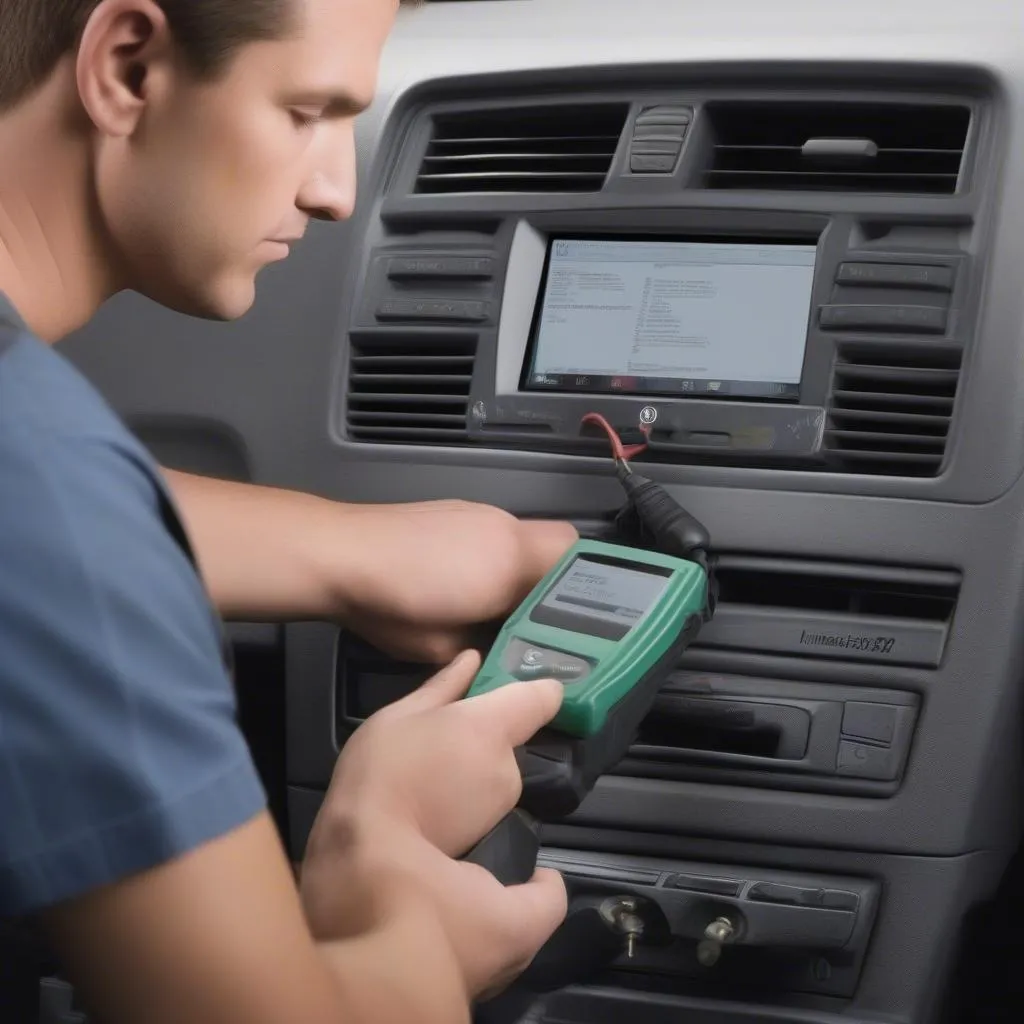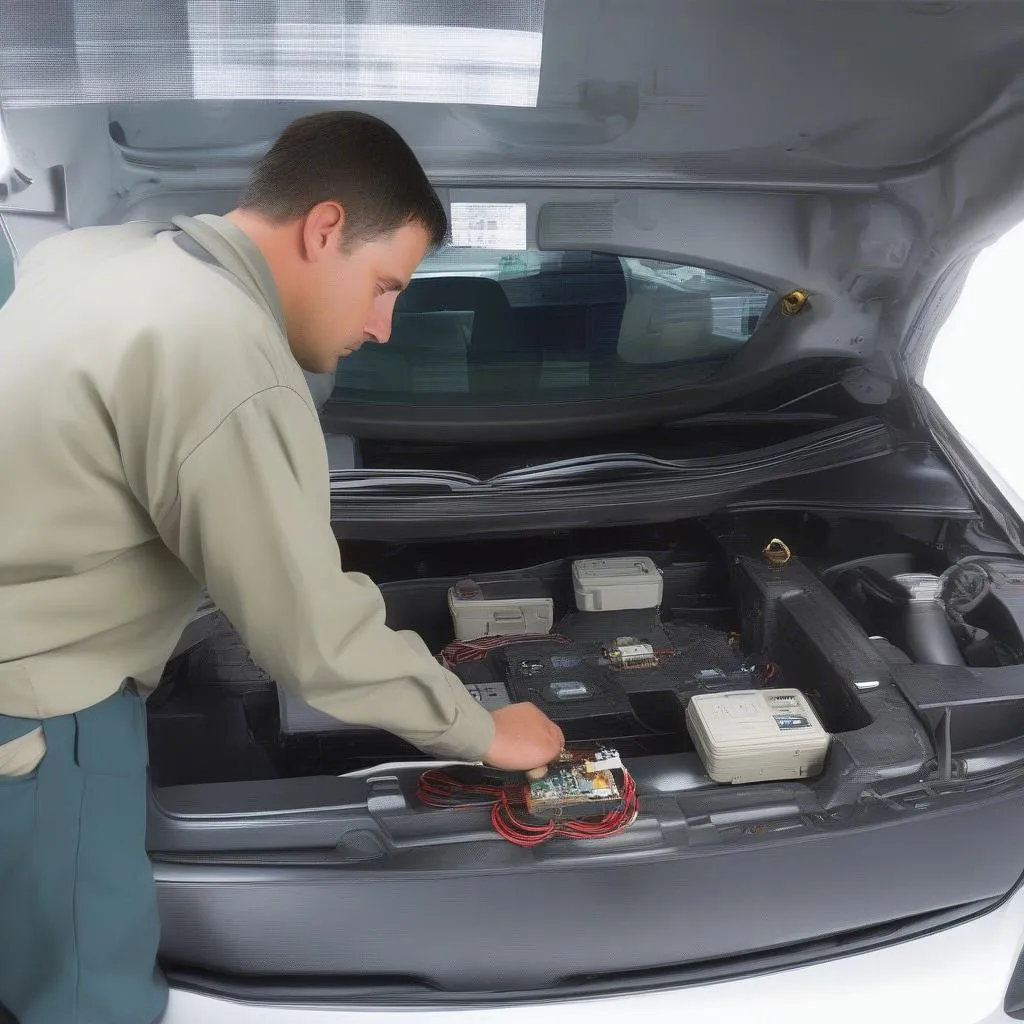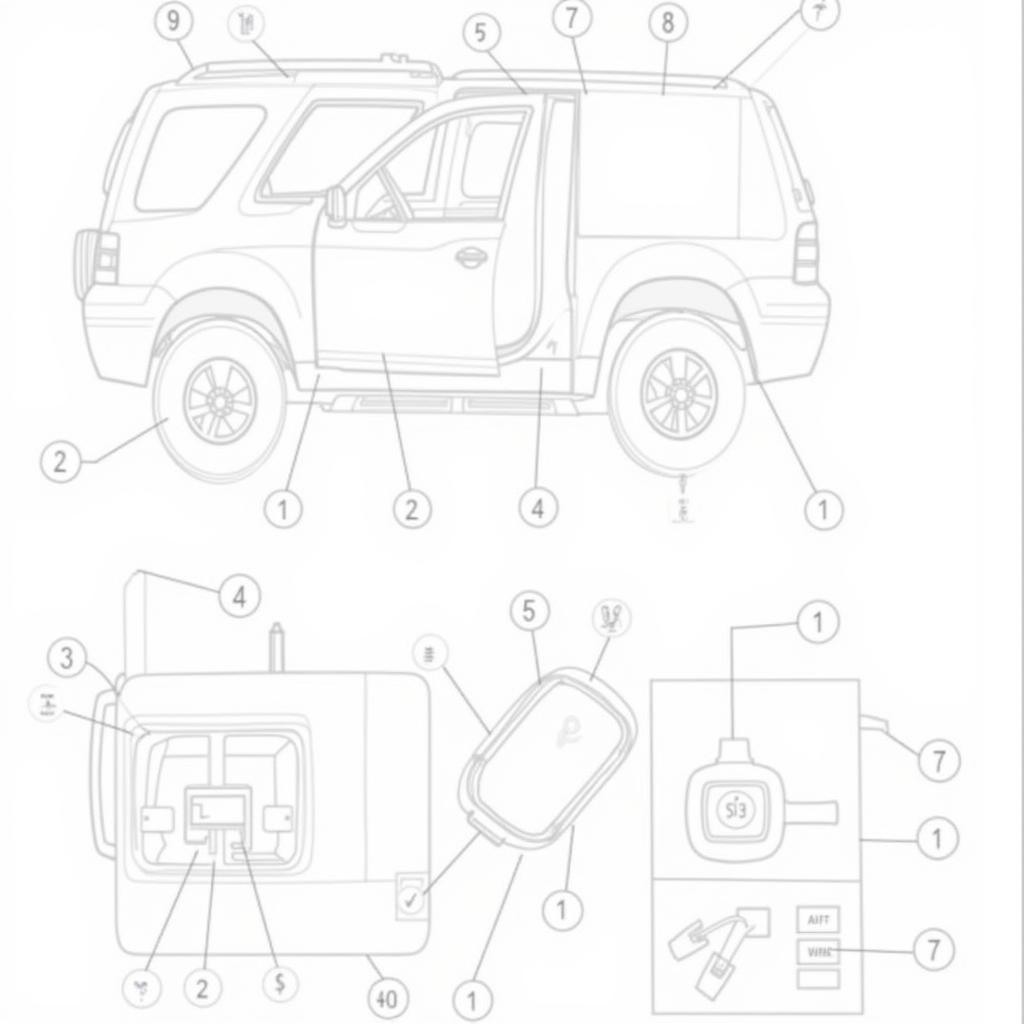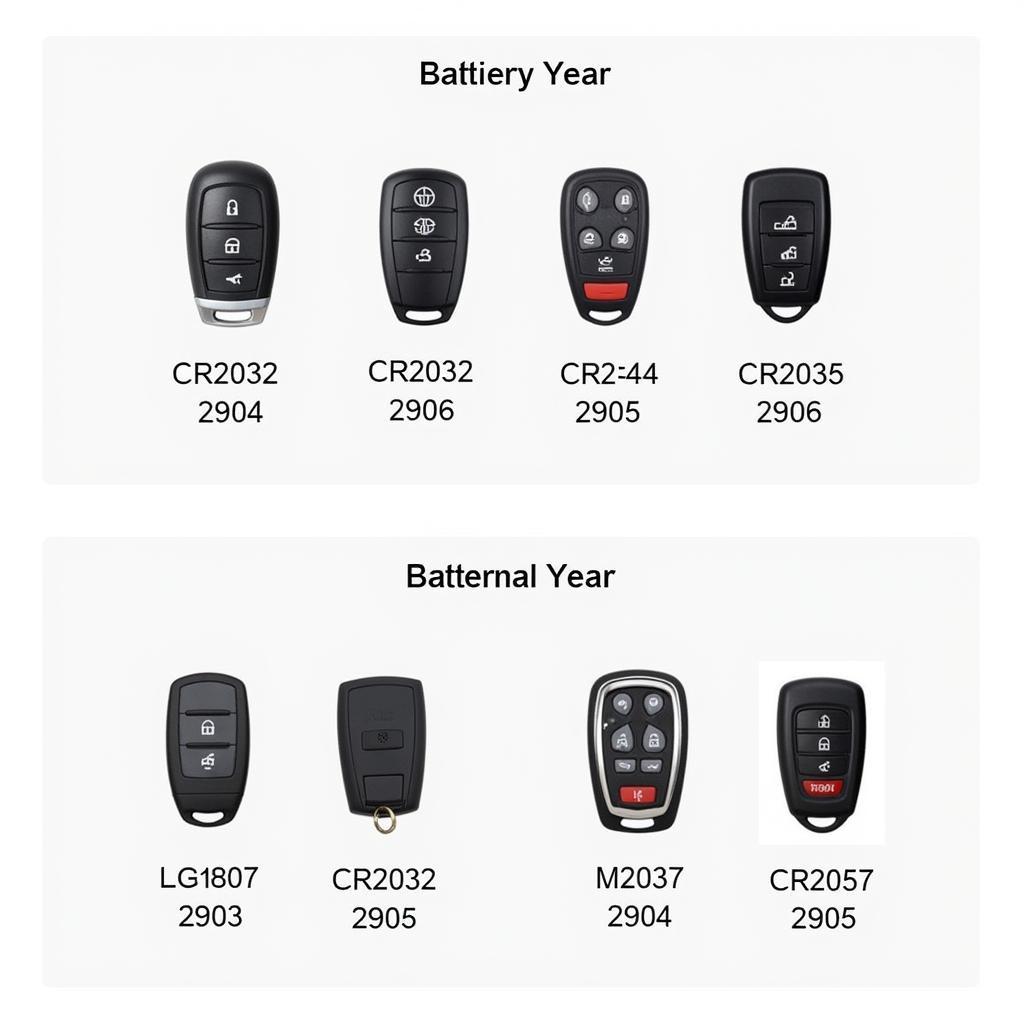Is your 2003 Volkswagen Passat acting up, refusing to start, or leaving you stranded? You might be dealing with a triggered immobilizer system. Let’s break down the ins and outs of your Passat’s anti-theft system, how to spot a potential problem, and what to do about it.
Understanding Your 2003 Passat Anti-theft System
Volkswagen introduced its immobilizer anti-theft system as a standard feature on the 2003 Passat. This system uses a transponder chip embedded in your car key. When you insert the key and turn the ignition, the car’s immobilizer control unit (ICU) scans the key for the correct code. If the codes match, the engine will start. If not, the immobilizer system kicks in, preventing the engine from starting.
Identifying a Potential Immobilizer Issue
Here are a few telltale signs that your Passat’s anti-theft system might be the culprit:
- The engine cranks but won’t start. This is the most common symptom of an immobilizer problem.
- The “immobilizer active” warning light flashes on the dashboard. This light is often shaped like a car key or a padlock with a car icon.
- The car remote keyless entry system isn’t working properly. This could be due to a weak battery in the key fob or a problem with the immobilizer system itself.
Essential Tools for Diagnosing and Fixing Immobilizer Problems
Before you dive into troubleshooting, it’s helpful to have a few tools on hand:
- A code reader: This handy device can read the diagnostic trouble codes stored in your car’s computer. This can help pinpoint the exact issue, whether it’s related to the immobilizer, the key, or another system entirely.
- A new car battery: Sometimes, a weak car battery can disrupt the immobilizer system’s communication.
- Spare key: It’s always a good idea to have a spare key programmed and ready, just in case.
 Car Diagnostic Tool for Immobilizer Issues
Car Diagnostic Tool for Immobilizer Issues
Troubleshooting Steps for Your Passat’s Anti-theft System
Let’s walk through some potential solutions to get your Passat back on the road:
- Check your car battery: A low battery can sometimes interfere with the immobilizer. Jump-start your car or replace the battery if needed.
- Try a spare key: If you have a spare key, try using it to start the car. This will help determine if the problem is with the key itself.
- Inspect the key: Check your key for any signs of damage or wear, especially around the chip area.
- Reset the immobilizer system: Sometimes, disconnecting the battery for a few minutes and then reconnecting it can reset the immobilizer.
- Consult a professional: If the problem persists, it’s best to seek the help of a qualified automotive locksmith or mechanic specializing in immobilizer systems. They can use advanced diagnostic tools to pinpoint the root cause and recommend the appropriate repair.
 Expert Help for Passat Immobilizer Problems
Expert Help for Passat Immobilizer Problems
FAQs About Passat Anti-theft Systems
Can I disable the immobilizer system in my 2003 Passat?
We strongly advise against attempting to disable the immobilizer system in your Passat. It’s there to deter theft and protect your investment. Tampering with it could lead to further complications and void your warranty.
What should I do if I’ve lost all my Passat keys?
If you’ve lost all your keys, you’ll need to contact a Volkswagen dealership or a qualified automotive locksmith. They can cut and program new keys for your Passat.
Can aftermarket car alarms interfere with the immobilizer?
It’s possible for aftermarket car alarms to interfere with the immobilizer system if they’re not installed correctly. Ensure any aftermarket alarm systems are professionally installed and compatible with your Passat’s electronics.
Are there any reliable diagnostic tools for Passat immobilizer issues?
Yes, tools like Cardiagtech offer advanced diagnostics and programming capabilities for various vehicle systems, including immobilizers. They can be invaluable for troubleshooting complex electronic issues.
Remember, when it comes to your car’s electronics and safety systems, it’s always best to rely on qualified professionals. They have the expertise and tools to diagnose and resolve problems effectively without causing further damage.



